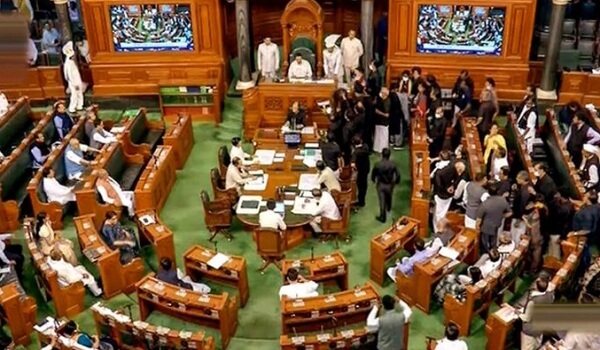The Registration of Births and Deaths (Amendment) Bill- 2023, was introduced in the Lok Sabha by the government. It amends the Registration of Births and Deaths Act, 1969. The Act provides for regulation of registration of births and deaths. This document is used for admission to educational institutions, application for driving license, government job, preparation of voter list, birth certificate, issue of Aadhaar card, passport, marriage registration and center The birth certificate will be used as the sole document for other official purposes as prescribed by the government.
Digital Birth Certificate will be a single document used to prove the date of birth, place of birth of a person in the country. The Bill provides for registering all births and deaths on a centralized portal. The Bill seeks to digitize birth records. Proposes. This is the first step India has taken to make digital birth certificates. This will save from multiplicity of documents to prove date and place of birth in the country. The bill seeks to create national and state level databases of registered births and deaths. A provision has been made for digital registration and electronic execution of birth and death certificates. Through the Bill, it has been made mandatory for medical institutions and private practitioners to issue death certificates free of cost. No charge will be levied in lieu of death certificate. Explaining the reason for bringing the bill, the government said that the change in the law was necessary to keep pace with social change and technological progress.
Centralized register
- The bill makes it mandatory for states to register births and deaths on the Civil Registration System (CRS) portal and share the data with the Registrar General of India.
- This will help in updating the centralized register database resulting in efficient and transparent delivery of public services and social benefits.
- The Bill incorporates provisions for digital registration and electronic delivery of birth and death certificates for the benefit of the public at large.
- For the first time the database will also be used to update the National Population Register (NPR), ration card and property registration records.
- The data for NPR was first collected in 2010 and then updated in 2015 through house-to-house enumeration.
- As per the Citizenship Rules- 2003, NPR is the first step in building the National Register of Citizens (NRC).
Will collect Aadhaar of parents
- The new rules will apply to all persons born after the Bill is passed by Parliament and becomes law.
- It proposes to collect the Aadhaar number of the parent or guardian in case of birth registration.
- At present, either of the parents can voluntarily provide their Aadhaar number for the birth certificate of a new born child through CRS.
- The Aadhaar coverage of an estimated national population of 138.72 crore as on 31 March is 93%.
- The new bill proposes to facilitate the child registration process for adopted, orphan, abandoned, surrogate child and single parent or unmarried mother.
- It makes it mandatory for all medical institutions to provide a certificate of cause of death to the registrar and a copy of the same to the next of kin.
- The Bill amends 14 sections of the Registration of Births and Deaths Act, 1969.
Benefit
- Can be used to create and update databases of registered births and deaths linked to other services.
- With its help, National Population Register (NPR), Electoral Rolls, Aadhaar Number, Ration Card, Passport, Driving License, Property Registration and all other national databases can be maintained.
- According to the government, this will speed up the delivery of public services.
- The Bill aims to aid in efficient and transparent delivery of public services and social benefits.
- This record will serve as a standard database for the curation and development of other diverse databases. For preparation and updation of databases such as NPR, Electoral Roll, Aadhaar, Ration Card, Passport and other national databases to be notified later.

